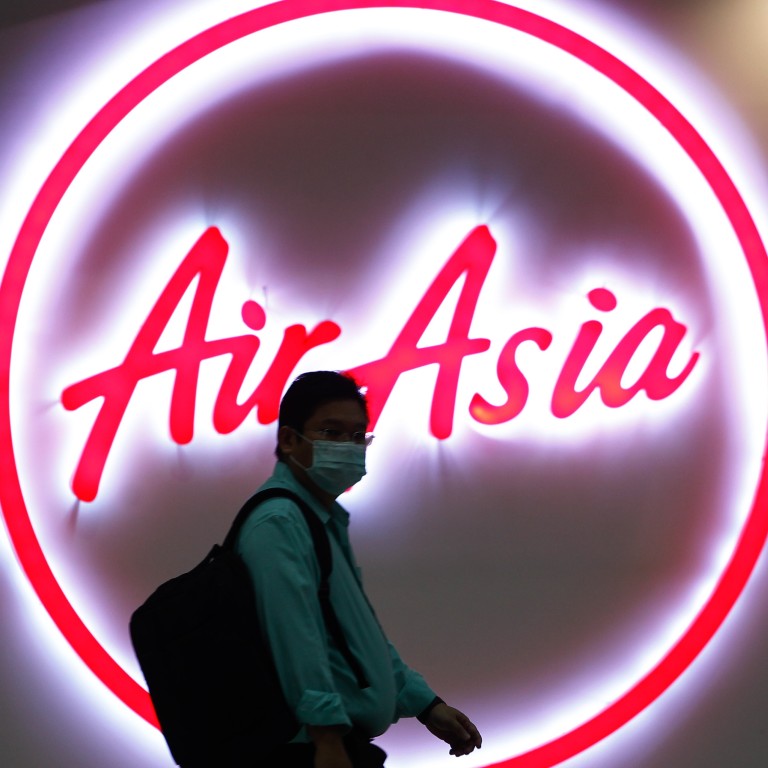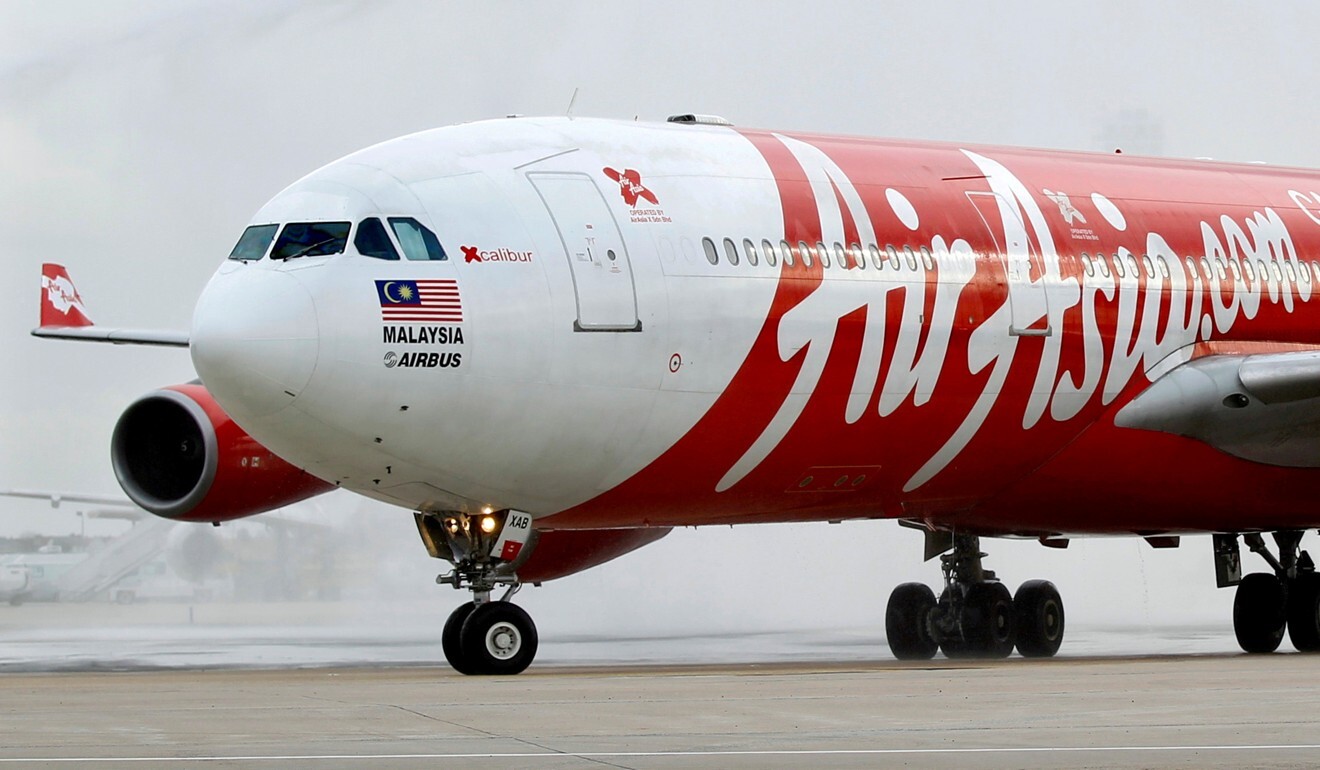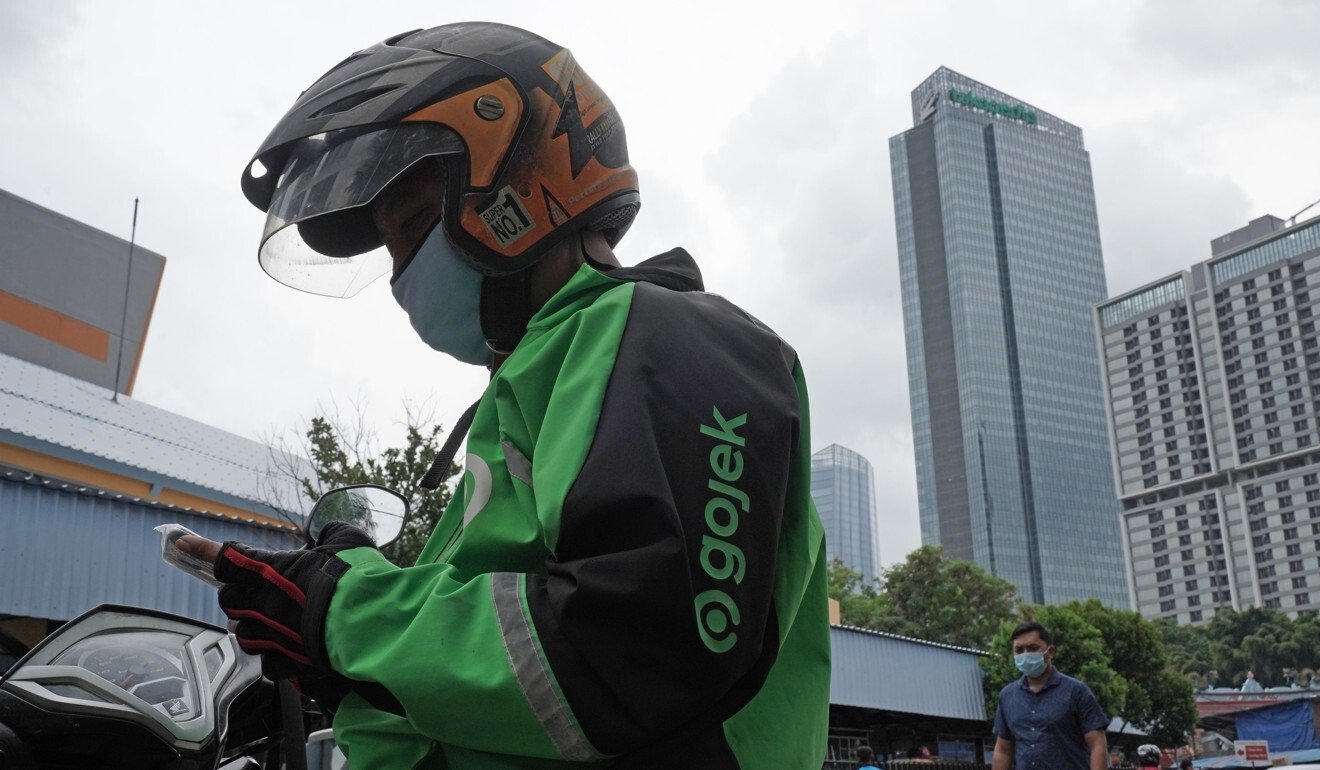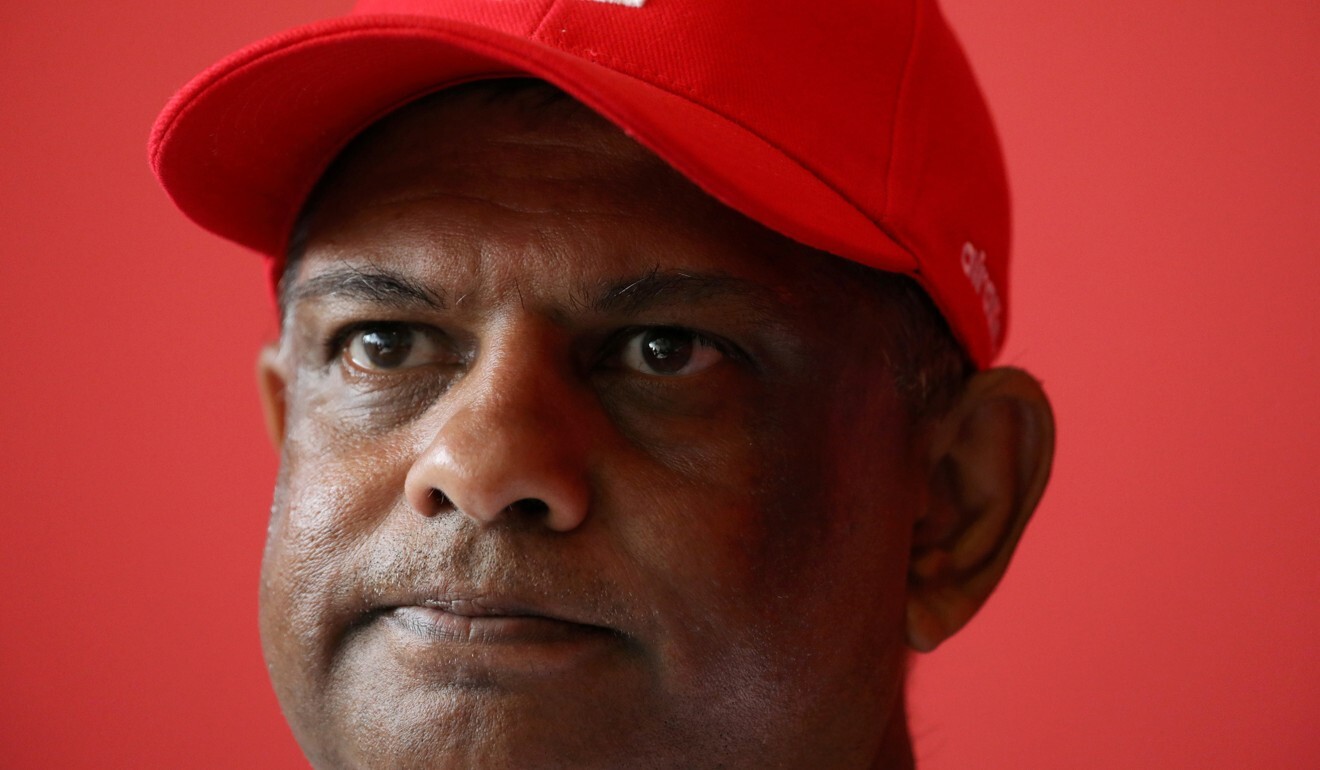
After acquiring Gojek’s Thai operations, can an AirAsia superapp soar in Southeast Asia?
- The low-cost carrier has stepped up its digital ambitions by acquiring Gojek’s ride-hailing and payments businesses in Thailand, in an all-share deal
- But analysts say it faces an uphill battle as the regional competition for superapps grows heated among giants such as Gojek, Grab, and Shopee
The all-share deal will see AirAsia take Gojek’s ride-hailing and payments businesses in Thailand, which are worth a combined US$50 million, while the Jakarta-based unicorn will get a 4.76 per cent stake in AirAsia Digital.
Malaysia’s AirAsia aims to be ‘more than an airline’ as coronavirus cripples aviation
AirAsia could also test new services in the market as Bangkok “is relatively open to innovations in the financial technology arena”, Chong said.
Gojek, which was last valued at US$10 billion, has successfully transformed itself from an online ride-hailing service into a superapp behemoth that provides food and grocery deliveries, cargo, and payment services, among others.

While AirAsia’s digital venture is now valued at US$1 billion, analysts say it still needs to revamp its offerings if it wants to compete with regional superapp giants such as Gojek, Grab, Shopee and Traveloka – the latter being a ticket booking platform in Indonesia that has ventured into food deliveries and payments.
“I think AirAsia faces an uphill battle. It will take a lot of extra effort for them to match the existing giants,” said Jianggan Li, founder and chief executive at Singapore-based venture building and consultancy firm Momentum Works.
“If AirAsia truly wants to build a regional superapp, it needs to have a meaningful presence in Indonesia. Grab and Sea Group have been using other higher-value markets to subsidise its long-term investment in Indonesia. I would assume that AirAsia would need to do the same.”
Singapore-based Sea Group owns online gaming developer and publisher Garena and superapp Shopee. With a market capitalisation of US$140 billion, the New York-listed company is the most valuable tech company in the region.
However, AirAsia does have an edge in the region’s cutthroat mobile payment competition. Its payment service, BigPay, allows users to carry out cross-border transactions such as remittances.
“This may be the next area of focus for superapps, so I wouldn’t be surprised to see other e-wallets starting to offer similar features to BigPay,” said Chong from Kapronasia.
BigPay is now available in Singapore and Malaysia, though it still trails competitors there. “In Malaysia, the top three e-wallets are Boost, GrabPay, and Touch ‘n Go,” he said. “BigPay may be the fourth or fifth player, but it really doesn’t have much of a presence. In Singapore, BigPay has almost no presence at all.”
According to AirAsia, BigPay now has 1.2 million members in the markets where it operates. It has also applied to the Malaysian central bank for a digital banking license.

The new Traveloka?
Under the deal with AirAsia, Gojek will cease its operations in Thailand by the end of this month, while AirAsia hopes to absorb them into its own app, which will be launched in the kingdom next month.
“The journey [in developing a superapp] is inspired by companies such as Gojek, but principally Gojek,” AirAsia group chief executive Tony Fernandes said during a Wednesday news briefing.
Besides developing its superapp, payment, and fintech services, Fernandes said the acquisition would also allow AirAsia to scale up its logistics business, Teleport, and “to form an alliance and partnership with Gojek”.
He added that he hoped AirAsia Digital could “be as good as Agoda and Traveloka”.
There is also a possibility for future collaborations between AirAsia and Gojek, including on the latter’s turf, Indonesia. “That’s to be discussed, but for sure, that’s something that we can complement Gojek [on],” Fernandes said. “[Indonesia is a] massive market, for instance, for travel. So, [let’s] wait and see. Let’s walk before we can run.”
After Gojek’s merger, are Indonesian delivery riders getting a worse deal?
The airline is considering a listing for AirAsia Digital in the United States via a special-purpose acquisition company, to raise at least US$300 million, Fernandes said, as reported by Reuters. He had previously said the superapp would target US$250 million in revenue this year and that it would contribute about half of AirAsia Group’s sales by 2026.
“We have now recruited our auditors to start preparing for an American listing so that’s very much on the table,” he said.
Industry watchers believe AirAsia’s deal with Gojek was not an attempt to drive up the company’s valuation before going public. “I believe a longer term and more strategic goal would be to acquire operational, strategic, and financial knowledge on how to run a superapp through this deal with Gojek,” Kapronasia’s Chong said.

For Gojek, the deal will allow it to cut costs in markets outside Indonesia and allow it to focus on Singapore and Vietnam, where it still has the potential to catch up on regional leader Grab.
“We took a look at the various international markets that we have and we decided our priority was to really invest in Singapore and Vietnam, just because of the scale of the business that we have in those markets,” Kevin Aluwi, one of Gojek’s co-chief executives, said during the news briefing.
Gojek last year only had a 7 per cent share of Thailand’s US$2.8 billion food delivery market, below the likes of GrabFood (50 per cent), Foodpanda (23 per cent), and LineMan (20 per cent), according to recent research by Momentum Works.
Fernandes said Gojek had 500,000 monthly active users, 40,000 riders and 40,000 merchant restaurants in Thailand. The company last year reported revenue of 235.6 million Thai baht (US$7.2 million) and a net loss of 565.3 baht (US$17.3 million), according to documents filed by AirAsia to Malaysia’s bourse, underscoring that Gojek was losing money in the country.
The deal, which comes after the multibillion dollar merger between Gojek and Tokopedia, one of Indonesia’s largest e-commerce firms, also underlines Gojek’s lacklustre attention on its international operations as it tries to strengthen its market leadership in Indonesia.
“That changes with the upcoming Gojek-Tokopedia merger, as the new GoTo entity is well placed to solidify its position as the dominant player in Indonesia. Now Gojek can re-examine its go-to-market strategy and focus on the markets that matter,” Chong said.
While AirAsia has a tie-up with Gojek in Thailand, observers said it was unlikely the two would work together to develop AirAsia’s superapp in Indonesia, particularly if the airline was the mainstay behind the operation. After all, Chong said, the merger between Grab and Gojek fell through after it was reported that there was a disagreement over the ownership structure of the combined entity.
“Whatever sort of arrangement Gojek and AirAsia come to, it will most likely see Gojek playing the leading role,” he said.

